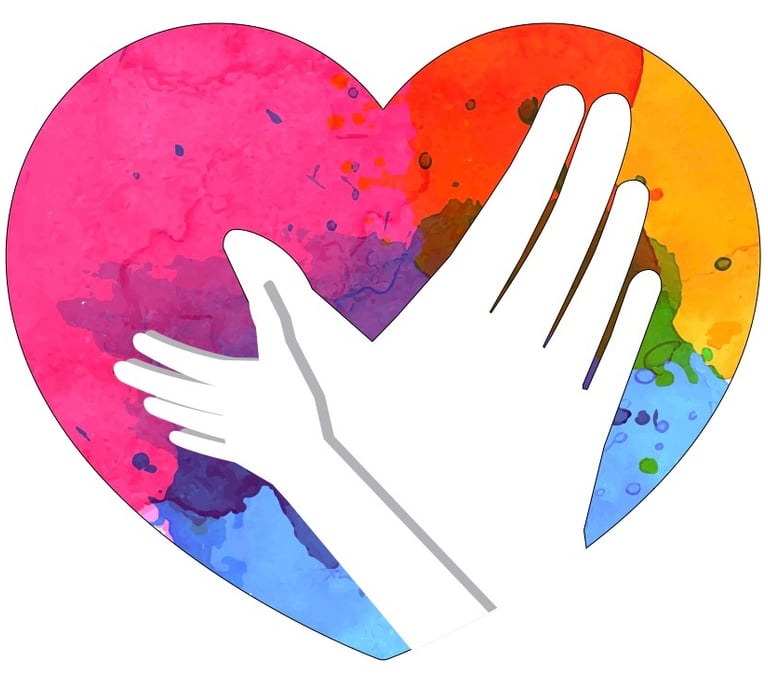What Is Caregiver Training and Why Is It Essential in ABA?
Caregiver training is a cornerstone of Applied Behavior Analysis (ABA), a proven therapy for developmental disorders like autism. This approach recognizes that parents, guardians, and caregivers play a vital role in a child’s progress since they are the ones who interact with the child the most in everyday life. By equipping caregivers with the right tools and strategies, ABA ensures that the child’s progress extends beyond therapy sessions and becomes a part of their daily routine.


Why Is Caregiver Training So Important?
The impact of ABA should not be confined to therapy sessions; it needs to reach the home, school, and community. Caregiver training bridges the gap between therapy and everyday life, providing caregivers with the skills to reinforce what their child learns in therapy. This not only helps generalize skills but also ensures they are maintained over time.
Connecting Therapy to Real Life
While therapists may work with a child for a few hours each week, caregivers are with them throughout the day. Without proper training, the child’s progress might be limited. Caregiver training empowers parents and guardians to become active participants in their child’s growth, applying techniques in real-time and in natural settings.
Why Are Parents an Essential Part of ABA?
1. Generalizing Skills
One of the primary goals of ABA is to help children apply learned skills across different settings and with different people. For instance, a child who learns to ask for help during therapy needs to do so at home, in school, or at a park. Caregivers play a critical role in modeling and reinforcing these behaviors in various contexts.
2. Consistent Reinforcement
Positive reinforcement is key to encouraging desirable behaviors and teaching new skills. Caregivers trained in ABA learn how to provide effective reinforcement, ensuring that behaviors are consistently encouraged and maintained.
3. Managing Challenging Behaviors
Many families face difficulties when dealing with challenging behaviors like tantrums, aggression, or resistance to change. Caregiver training provides practical strategies to prevent, address, and redirect these behaviors in constructive ways.
4. Creating Learning Opportunities
Everyday activities, from getting dressed to playing or eating, offer countless opportunities for learning. Caregiver training helps parents identify and leverage these moments to teach important skills such as communication, patience, and following instructions.
How Does Caregiver Training Work?
1. Initial Assessment
The process begins with a personalized assessment of the child and their caregivers. This helps identify specific areas where support is needed and allows for a tailored training plan.
2. Hands-On Training
Board Certified Behavior Analysts (BCBAs) work directly with caregivers, teaching them strategies like using positive reinforcement, managing challenging behaviors, and creating structured routines.
3. Guided Practice and Feedback
Caregivers practice these techniques during sessions, receiving real-time guidance and feedback from the therapist. This ensures that the strategies are practical and effective in real-world scenarios.
4. Ongoing Monitoring and Adjustments
As the child progresses, the training evolves to address new goals or challenges. This dynamic approach ensures that caregivers stay equipped to support their child’s development.
Key Benefits of Caregiver Training
• Empowered Families: Caregivers gain confidence and skills to support their child’s growth, reducing feelings of uncertainty or frustration.
• Consistent Intervention: Alignment between therapists and caregivers ensures that strategies are consistent, accelerating the child’s progress.
• Long-Term Impact: Skills learned in therapy are not only maintained but also expanded throughout the child’s life, promoting greater independence and quality of life.
Looking Beyond Therapy
Caregiver training is not just a supplement to ABA—it’s a critical component that can make the difference between temporary success and lasting, meaningful change. By empowering parents and caregivers, ABA strengthens not just the child’s progress but also the family unit, fostering a more positive and harmonious environment.
If you’re looking for an ABA program that integrates caregiver training as a core element, Little Smile Behavioral is here to help. Our specialists collaborate with you and your family to ensure that every skill learned is meaningful and sustainable. Contact us today and take the first step toward a brighter future! 💙
Get in touch


